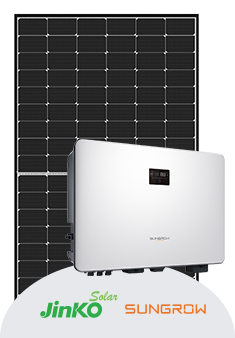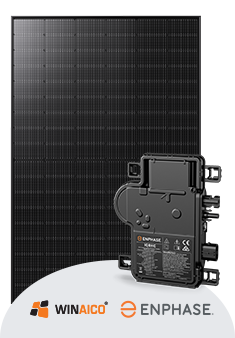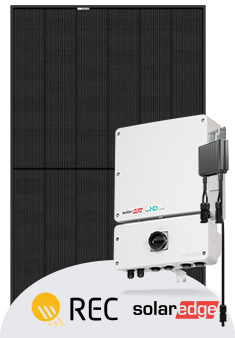QUALITY SOLAR PANELS
THE IMPORTANCE OF QUALITY
When it comes to solar energy, not all solar panels and installations are created equal.
At Soltek Energy, we are committed to providing our customers with the highest quality solar energy solutions. That’s why we only use the most reliable and efficient brands of solar panels and batteries.
Quality solar panels are more efficient, meaning they convert more sunlight into electricity. They are also more durable and weather-resistant, which means they will last longer and produce more energy over their lifetime. In addition, quality solar panels are backed by comprehensive warranties, so you can be confident that you are making a trustworthy investment.
The quality of the installation is just as important as the quality of the panels themselves. A poorly installed solar panel system can be dangerous and inefficient. That’s why we use only experienced and certified installers who will ensure that your system is installed correctly and safely.
At Soltek Energy, we are committed to providing our customers with the best possible solar energy experience. We use only the highest quality panels and batteries, and we employ experienced and certified installers. We also offer comprehensive warranties on all of our products and services.
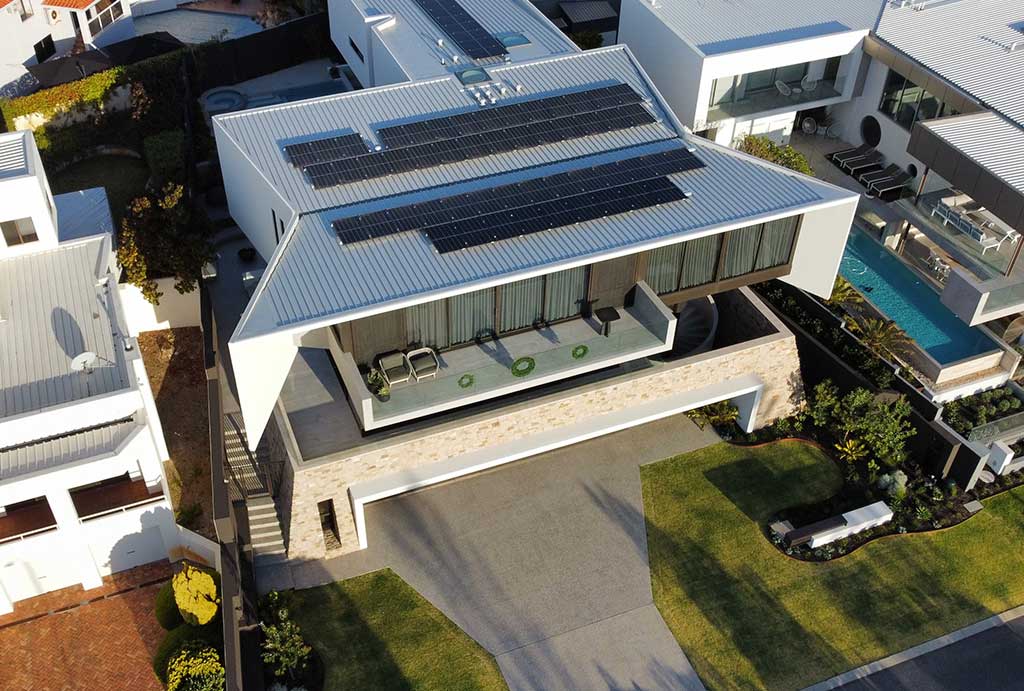
Enhancing Your Home with Soltek Energy
When it comes to expanding your solar system, it’s crucial to consider your setup’s aesthetic and functional integrity. Adding new panels to an existing 1-2 kW system can create an unappealing mismatch in appearance and performance.
At Soltek Energy, we advise against such piecemeal solutions. Instead, we recommend starting fresh with a cohesive, integrated system. Removing the old panels and recycling them ensures a uniform look and optimal performance for your home.
Don’t compromise on quality or aesthetics. Trust Soltek Energy to design and install a new, efficient solar system that enhances your home’s value and appearance.

The REC Alpha Pure Series unites leading cell technologies to create a revolutionary, powerful and reliable panel to help you make more savings from your rooftop. REC Alpha Pure panels feature REC’s innovative design, with high panel efficiency & power output thanks to top-quality monocrystalline cells. This enables you to get more out of the space available on your roof – helping to lower your energy bills and shorten the payback time through increased yield and lower costs.


Whether it is about performance or reliability under actual conditions in the field – the ratings by industry experts and independent institutes always show WINAICO modules as a top performer. As a leading manufacturer of high- performance photovoltaic modules from Taiwan and a global photovoltaic specialist, WINAICO places great importance on 100% quality control in the entire process chain.
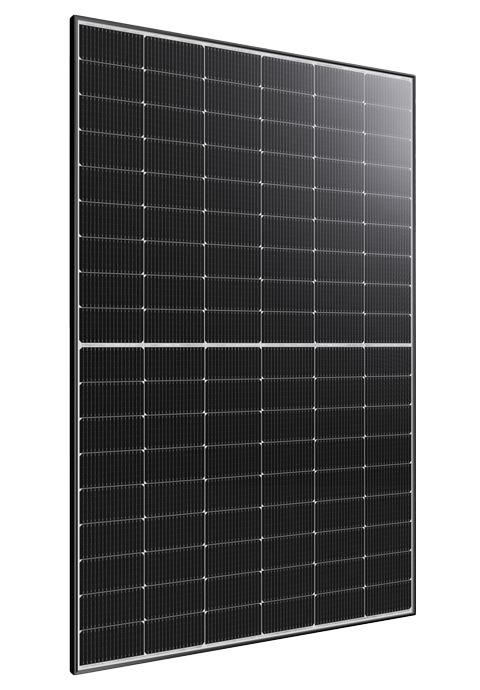

Jinko Tiger 415W N-Type is one of the largest and most innovative solar module manufacturers in the world. JinkoSolar distributes it solar products and sells its solutions and services to a diversified international utility, commercial, and residential customer base in China, the United States, Japan, Germany, the United Kingdom, Chile, South Africa, India, Mexico, Brazil, the United Arab Emirates, Italy, Spain, France, Belgium, and other countries and regions. JinkoSolar has built a vertically integrated solar product value chain, with an integrated annual capacity of 10.5 GW for silicon wafers, 7.4 GW for solar cells, and 12.6 GW for solar modules, as of June 30, 2019.
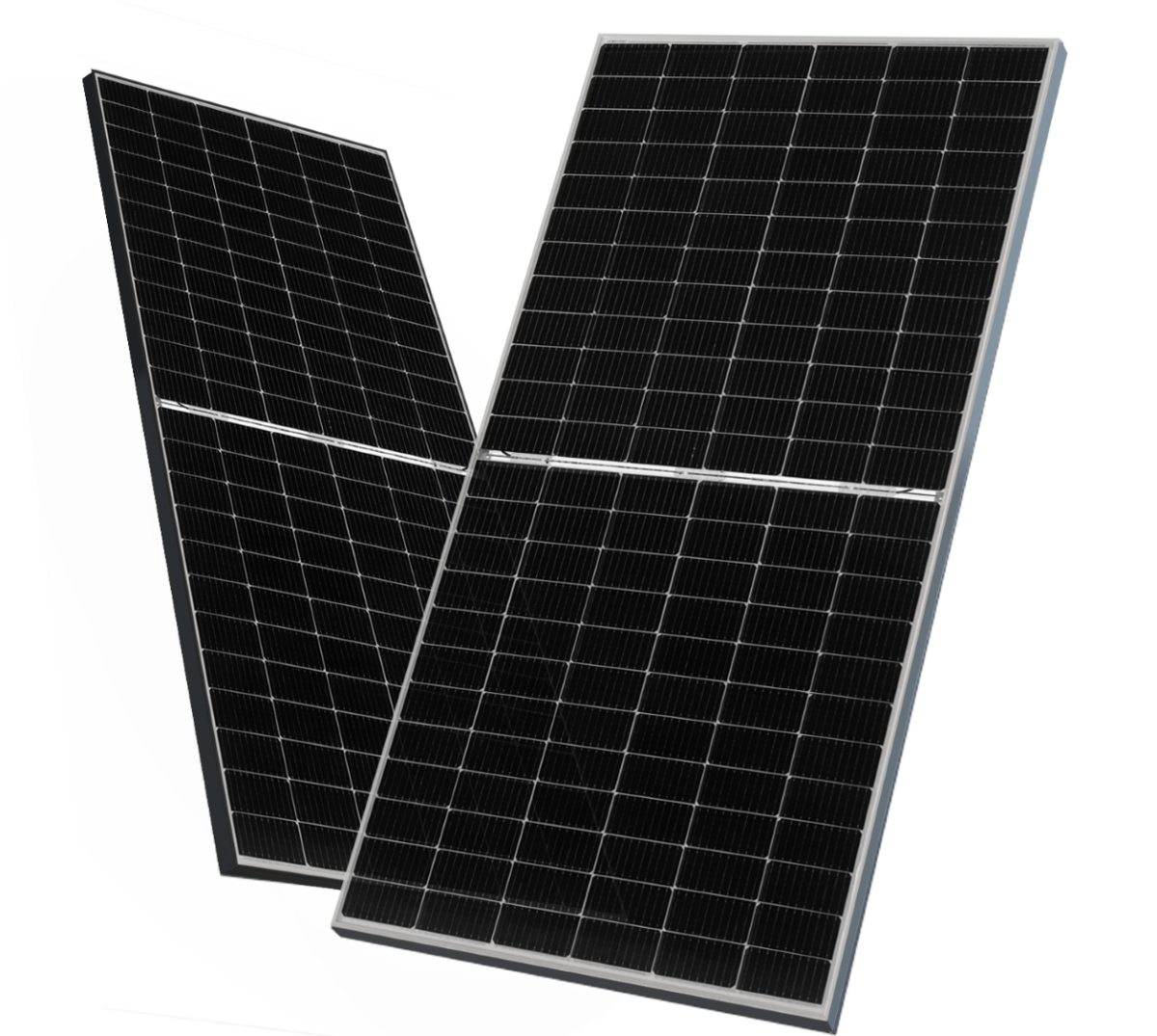
FAQs
What are the top 5 Solar Panel Myths?
In our experience as professional solar panel installers, we’ve encountered various myths about solar energy that require clarification. Here are some common solar panel myths we’ve encountered and urge customers to disregard:
1. Myth: Solar Panels Are Too Expensive for Most Australians
This myth may have originated during the early stages of residential solar adoption in Australia when solar technology was less prevalent. Contrary to this misconception, the reality is that the solar panel cost in Australia has seen significant reductions, making them an increasingly viable and cost-effective option for homeowners.
The average solar panel cost varies but is generally competitive. The upfront cost can be mitigated with the availability of financing options, government rebates, and incentives. Australians are encouraged to explore these financial avenues to make solar energy more accessible and affordable for their homes.
Homeowners need to realise that the myth of too expensive solar panels doesn’t align with the current state of the solar industry in Australia. Technological advances, coupled with a strong emphasis on sustainable energy, have contributed to the affordability and accessibility of solar panels. Engaging with reputable solar installation companies in Australia can give homeowners insights into the various financing options and incentives available, making the transition to solar power a practical and economically sound choice.
2. Myth: You Can’t Recycle Solar Panels
The misconception that solar panels cannot be recycled is a persistent myth that requires debunking. While recycling solar panels involves a more intricate process compared to conventional materials, it is entirely feasible, and several organisations in Australia facilitate this eco-friendly practice.
Sending out-of-commission panels to entities like First Solar, Recycle PV, and We Recycle Solar offers a straightforward solution. These organisations specialise in ensuring solar panels undergo safe and environmentally sound recycling processes. Moreover, the positive aspect is that the components of old solar panels can be repurposed for various applications, such as powering camping gear or small electronics.
Australians must be aware that the myth surrounding the recycling of solar panels is outdated. The solar industry has recognised the importance of responsible disposal, and recycling initiatives have been established to minimise environmental impact. With the durability and long lifespan of solar panels—averaging 25 to 30 years—recycling is achievable and contributes to Australia’s overall sustainability of solar energy. Embracing these recycling options aligns with the country’s commitment to green practices and the responsible management of renewable energy resources.
3. Myth: Solar Panels Don’t Work Effectively in Cloudy, Rainy, or Cold Weather
This widely held myth suggests solar panels are only effective when exposed to direct sunlight and warm temperatures. While it’s true that solar photovoltaic (PV) cells absorb and produce more energy in bright sunlight, the notion that solar panels cease to function in cloudy, rainy, or cold weather is inaccurate.
In reality, solar panels continue to generate electricity even in less-than-ideal weather conditions. While solar panel efficiency may be slightly impacted on cloudy days, it is important to dispel the misconception that they cease producing electricity. Technological advancements in solar panel efficiency have been significant, and they now exhibit a remarkable capability to convert UV light into energy, even when the sun is partially obscured by clouds or during cold days.
Moreover, understanding the concept of the ‘temperature coefficient.’ While it’s true that solar panel efficiency is slightly less efficient in warmer weather, they compensate for this performance dip through extended light exposure during longer daylight hours. This means that solar panels remain operational even on cloudy days or in cold climates and contribute to energy production.
This Solar Panel myth is particularly relevant for Australians, especially in regions like Perth, where sunlight is abundant. The high solar panel efficiency of modern systems, combined with the extended daylight hours in such areas, makes solar systems an ideal and reliable energy source, debunking the misconception that solar panels are exclusively effective under specific weather conditions.
4. Myth: Solar Panels Decrease Your Property’s Resale Value
One prevailing myth surrounding solar panels is the notion that they have a negative impact on the resale value of a property. Contrary to this belief, the reality is quite the opposite – solar panels can significantly enhance the resale value of a home.
Studies, including research from platforms like Zillow, consistently demonstrate that homes and businesses equipped with solar panel installations tend to sell for more than those without. This increase is around 4.1% on average, translating to a substantial boost of nearly $9,300. Homebuyers increasingly recognise the value of a property with a sustainable and energy-efficient feature like solar panels.
Australians contemplating solar installations need to understand that solar panels contribute to environmental sustainability and serve as an attractive investment for potential buyers. Modern solar panel designs are often created to seamlessly integrate with a home’s aesthetic, dispelling the notion that they are an unsightly addition. Instead, they can be viewed as functional accessories that signal a commitment to reducing carbon footprints and long-term energy savings.
This myth underscores the financial benefits of solar energy in the Australian real estate market, where the inclusion of solar panels can be a selling point rather than a deterrent, aligning with the increasing demand for sustainable living solutions.
5. Myth: Solar Panels Are Maintenance-Intensive
A common misconception surrounding solar panels is that they require constant and costly maintenance. Solar panels are designed to be durable, low-maintenance, and capable of withstanding various environmental conditions.
Modern solar panels are constructed with sturdy materials that endure rain, wind, and hail. Routine maintenance typically involves simple tasks such as occasional cleaning to remove dust or debris, which can be done with water and a soft brush. The self-cleaning nature of rain often contributes to keeping the panels free from dirt.
Moreover, solar panel manufacturers often provide warranties ranging from 20 to 25 years, showcasing confidence in the durability and longevity of their products. This dispels the myth that solar panels are prone to frequent breakdowns or require continuous attention.
While monitoring the system’s performance periodically is advisable, advancements in monitoring technology allow homeowners to do this remotely. In the rare event of a malfunction, most issues are covered by warranties, minimising out-of-pocket expenses.
Understanding that solar panels are not burdensome in terms of maintenance for Australians considering solar installations can alleviate concerns and highlight the practicality and ease of integrating solar energy into their homes.
Can Solar Panels Survive a Cyclone?
Investing in solar panels prompts legitimate concerns about their durability and functionality, particularly in the face of extreme weather conditions like cyclones. Let’s delve into these concerns, dispel uncertainties, and offer recommendations to enhance preparedness:
Solar Panels’ Resilience in Extreme Weather Conditions:
Functionality During Heavy Rain and Cyclones:
Efficiency Assurance: While it’s natural to question whether solar panels will function during heavy rain or cyclones, the reality is that solar panels are designed to be waterproof. This ensures they can continue generating energy even amidst heavy rain. In cyclones, where rain is a concern, solar panels can still be operational.
Operational Efficiency: Solar panels may be more efficient in direct sunlight, but they can still generate around 25% of their maximum capacity on rainy days. Rainfall can even be beneficial as it washes away accumulated dirt, dust, and particles, improving panel efficiency.
Survivability in Hailstorms:
Impact on Panels: Modern solar panels are constructed to endure various weather conditions, yet hail can pose a challenge. Large hailstones exceeding 25mm in diameter can potentially damage solar panels. While the toughened glass surface provides protection, assessing the damage and ensuring compliance with Australia’s Standards for solar PV panel construction is crucial.
Efficiency Consideration: The impact of hail on solar panel efficiency depends on the severity of the hailstorm. Regular inspections and adherence to construction standards are essential for ongoing efficiency.
Recommendations to Enhance Resilience:
- Insurance Coverage: Falling debris during extreme weather events is a common cause of solar panel damage. Home insurance plans often cover rooftop solar panels, considering them as attachments to the home. Exploring insurance options can minimise potential financial losses in the event of cyclone-induced damage.
- Professional Consultation: Coordinating with insurance providers and seeking advice from solar professionals ensures the best recommendations are tailored to specific circumstances. Evaluating the wind load and extreme weather rating on panels contributes to understanding their durability in challenging conditions.
- Installation Practices: A reputable installer considers various factors during the design and installation process, such as panel type, weight, size, mounting, roof type, height, inclination, and tilt. Meticulous installation practices ensure the system’s safety, security, and efficiency on the roof.
Recommendations to Prepare and Avoid Potential Risks:
Ensuring that your solar panel system is cyclone-ready involves a combination of careful planning, proper installation, and proactive measures to mitigate potential risks. Here’s a guide to help you prepare your solar system for cyclones:
1. Professional Installation:
- Select a Reputable Installer: Choose a certified and reputable solar panel installer with experience in cyclone-prone regions. A professional installer will consider local building codes and standards to ensure the system is resilient.
- Secure Mounting Systems: Ensure that the solar panels are securely mounted to withstand high winds. The mounting system should adhere to local building codes and be designed to handle the specific wind loads experienced in cyclone-prone areas.
2. Structural Considerations:
- Roof Inspection: Prior to installation, conduct a thorough inspection of your roof’s structural integrity. Reinforce weak areas if necessary, and ensure the roof can support the additional weight of solar panels.
- Proper Anchoring: Ensure that the solar panel mounting brackets or frames are securely anchored to the roof structure. Reinforce the attachment points to withstand strong winds.
3. Compliance with Standards:
- Adherence to Local Codes: Ensure that your solar panel system complies with local building codes and standards for cyclone-prone regions. This may involve specific requirements for wind load resistance and structural engineering.
- Australian Standards: Familiarise yourself with relevant Australian Standards for solar PV panel construction. Compliance with these standards ensures that your solar panels are designed to withstand extreme weather conditions.
4. Maintenance and Monitoring:
- Regular Inspections: Conduct regular inspections of your solar panel system to identify any signs of wear, damage, or loose components. Regular maintenance helps ensure the longevity and reliability of the system.
- Monitoring Technology: Invest in monitoring technology that allows you to remotely check the performance of your solar panels. Some systems come with weather monitoring features, providing real-time information on weather conditions.
5. Emergency Preparedness:
- Backup Power Sources: Consider installing a solar battery or generator as a backup power source. In the event of a power outage during a cyclone, having a backup system can keep critical appliances running.
- Emergency Shutdown Procedures: Establish emergency shutdown procedures for your solar panel system. In the event of an approaching cyclone, you may need to safely shut down the system to prevent damage.
6. Insurance Coverage:
- Review Insurance Policies: Check your home insurance policies to ensure that your solar panels are adequately covered. Inquire about coverage for potential cyclone-related damages, including falling debris or structural damage.
- Document System Details: Keep detailed documentation of your solar panel system, including installation records, warranties, and photographs. This documentation can be useful for insurance claims in the event of damage.
In conclusion, ensuring the survival and efficiency of solar panels in extreme weather involves a combination of proactive measures, adherence to standards, and regular maintenance. Homeowners can harness the benefits of solar energy while mitigating potential risks associated with cyclones and other extreme weather events.
Do I need permission to install Solar Panels
In New South Wales (NSW), specific regulations govern the installation of solar panels. While Council approval is not typically required for solar installations in many parts of NSW, certain considerations must be addressed, particularly for heritage-listed properties or those within Heritage Conservation areas.
General Requirements:
- Roof Integration: Solar panels should be installed in a manner that integrates with the roof’s structure, ensuring they are flush or parallel with the roof’s surface. Any installation that compromises the structural integrity of the building or roof may require Council approval.
- Tree Preservation: Solar installations should not prompt the illegal removal of trees near the building to minimise shade on the roof.
Heritage Listed Homes:
Special appearance and preservation conditions apply for heritage-listed homes in NSW. These homes are subject to stringent regulations to preserve architectural integrity. If your home is heritage-listed or located within a Heritage Conservation area, you may need Council approval for solar installations processed as a development application (DA).
State-Specific Regulations:
Only licensed electrical contractors or building license holders in NSW can undertake solar system installations. It’s illegal to perform electrical work without the necessary qualifications. Installations exceeding $20,000 require certification under the Home Building Compensation Scheme.
Contracts and Deposits:
According to the Home Building Act of 1989, customers should not be asked to pay more than 10% of the contract price as a deposit for solar installations. Written contracts are mandatory for work exceeding $5,000, accompanied by a Fair Trading Consumer Building guide if over $5,000.
While Council approval is generally not required for solar installations in NSW, exceptions exist for heritage-listed properties or those within Heritage Conservation areas. It’s crucial to consult with your trusted installer and local Council to ensure compliance with specific regulations applicable to your circumstances. Solar panels represent a sustainable and environmentally conscious choice for homeowners seeking energy independence and long-term cost savings in NSW.
QUALITY RESIDENTIAL SOLAR PACKAGES
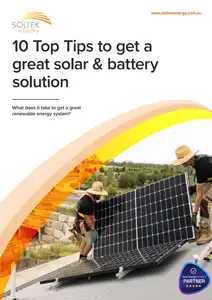
Free Solar & Battery E-Book
10 Top Tips to get a great solar & battery solution
This detailed guide has been prepare using our over 15 years of industry experience. It gives you a great overviews of the key factors to consider in your purchasing decision.
Download your free 20 page E-Book with 10 of the best helpful solar purchasing hints. No Catch. Why? Because solar is a long term investment and we care about what we do and by providing important information to everyone that they can make the best solar & battery choice!
